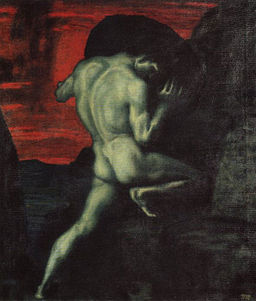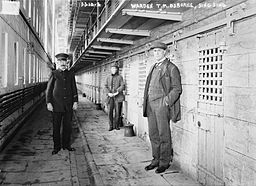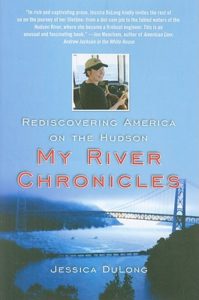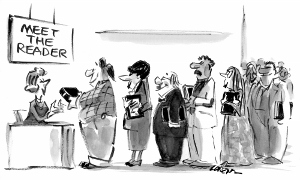The inevitable question gets tossed out early whenever people are introduced: “So, what do you do?”

Public domain U.S. image
Most of us devote more of our life’s waking hours to our vocation―our career―than to any other pursuit. With all of those dedicated on-the-clock hours, shop-talk is often, but not always, an easy discussion. Our relationship with work can run the gamut, from feeling like the futile labors of Sisyphus to the wild adventures of Ulysses.
Literature is filled with characters whose attitudes toward work are a central part of the story: Tom Sawyer’s chore-shirking antics; Willy Loman’s quest for success in all the wrong places; Sherlock Holmes’s delight in superior sleuthing; and Howard Roark’s relentless pursuit of architectural perfection.
This month’s blog features some great non-fiction books that show whether we love or despise our jobs (or feel something in between,) it is a very real relationship―for better or for worse.
“NewJack: Guarding Sing Sing,” takes us behind bars into the clandestine work-world of maximum security prison guards. Ted Conover is an investigative journalist who was curious whether guards were stereotypically violent, like the ones we often see in movies. If the stereotype was true, what created it, and if false, why did it perpetuate? The problem was that he couldn’t find anyone who would openly talk to him about the work. So, he did the most practical thing short of getting thrown into prison―he got a job as a guard at New York’s infamous Sing-Sing.

Photograph is from the Library of Congress online catalog. There are no known restrictions on its publication, so it appears to be in the public domain.
A few years back, I attended a writer’s conference where Conover shared some his experiences. He read one passage where a guard described the job as, “a life sentence in eight-hour shifts.” Some of the audience gave a little moan and others shuddered. In reality, there are worse torments, but the thought of spending life shackled to a loveless job, is an image that can make us cringe.
Conover pulls no punches in writing about the actions and attitudes of the guards and the guarded, but he manages to neither vilify, nor canonize, either group. It’s a book that is highly-worth reading.
If “NewJack” captures what it can be like to work behind locked doors, “My River Chronicles: Rediscovering America on the Hudson,” shares what it’s like to feel set free. Jessica DuLong had a “secure” dot-com job in 2001; until suddenly one day, she didn’t. When she first lost the job, it seemed like a bad thing; but that was before contortions of fate changed her life.
 DuLong writes with a fresh-faced exuberance in her thrill of discovery. Her story feels like breathing air on the open water. Warning: It may also make you feel that you should run out and pursue whatever career passion you’ve yearned for…now! It’s a story of following dreams that we didn’t even know existed and how those dreams sometimes do come true. (P.S. DuLong is now a U.S. Coast Guard-licensed Merchant Marine Officer and one of the world’s only female fireboat engineers.)
DuLong writes with a fresh-faced exuberance in her thrill of discovery. Her story feels like breathing air on the open water. Warning: It may also make you feel that you should run out and pursue whatever career passion you’ve yearned for…now! It’s a story of following dreams that we didn’t even know existed and how those dreams sometimes do come true. (P.S. DuLong is now a U.S. Coast Guard-licensed Merchant Marine Officer and one of the world’s only female fireboat engineers.)
For more some more uncommon insights about labor and laborers, check out, “Hidden America: From Coal Miners to Cowboys, An Extraordinary Exploration of the Unseen People Who Make This Country Work.” The subtitle just about says it all. This is the inside-scoop (personal and professional) from some of America’s most unseen workforce.
Author Jeanne Marie Laskas job-shadowed a cross-section of underreported and underappreciated workers and she gives them, and their work, a real voice. The book’s nine tales will take you from hanging off an oil-rig in the subzero Arctic to monster-mashing a land-fill full of gunk, and beyond.
Along with the stories of individuals, Laskas weaves a picture of how some of these ignored industries collectively affect us, present and future. If you have ever marveled how we flip a switch and, voila, light appears-or puzzled over where bags of garbage spend their afterlife-or been stuck in the air on an interminable holding pattern and wondered what the heck really was going on back at air traffic control―you don’t want to miss, “Hidden America.”
As for the question, “What do you do?” Someday―if only to enjoy the reaction―I may reply: “I am a Reader.”

Reprinted with Permission from The New Yorker
After all, aren’t all writers first designed to be good readers and isn’t getting paid to read whatever books our heart desires, a fantasy of every bibliophile? For workers everywhere, especially those who revel in the compelling ideal of “Occupation: Reader,” I share the sage Robert Frost’s immortal words:
…My object in living is to unite My avocation and my vocation As my two eyes make one in sight. Only where love and need are one, And the work is play for mortal stakes, Is the deed ever really done For Heaven and the future’s sakes.